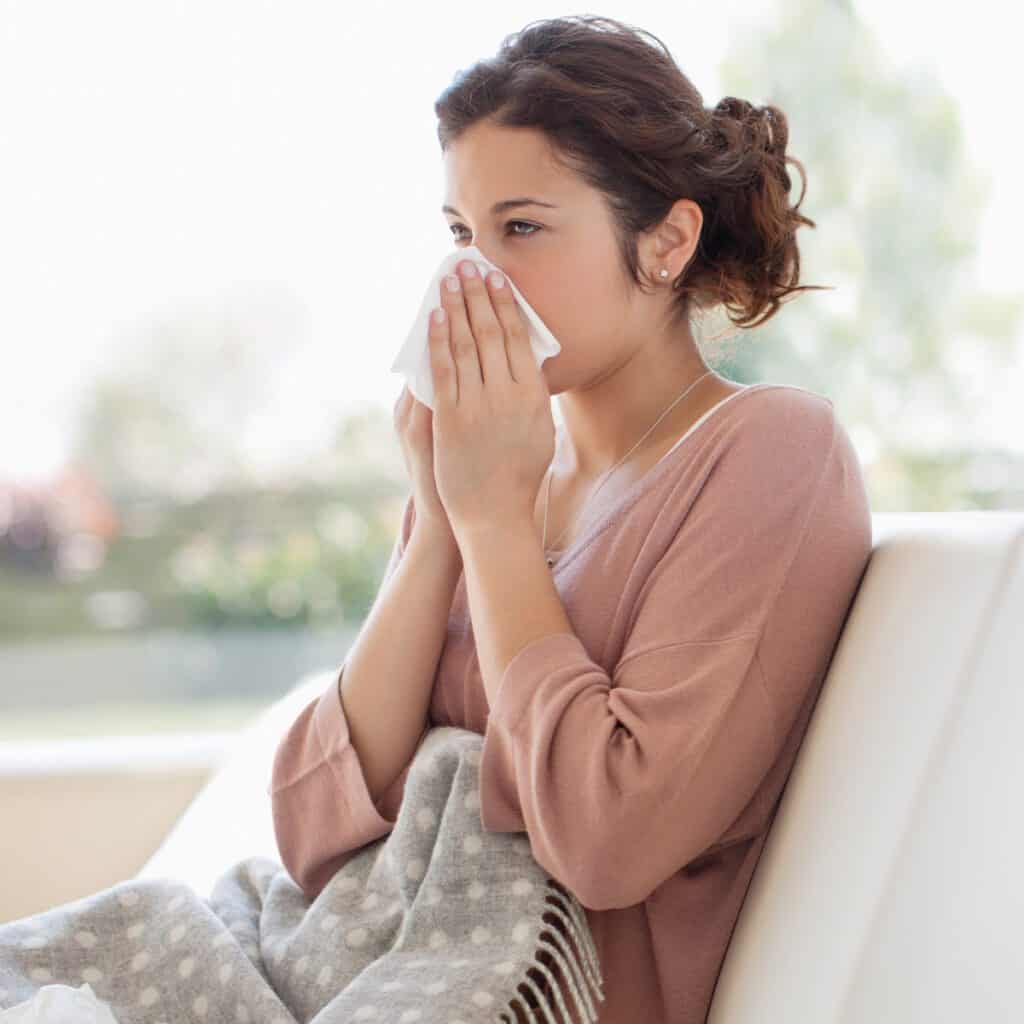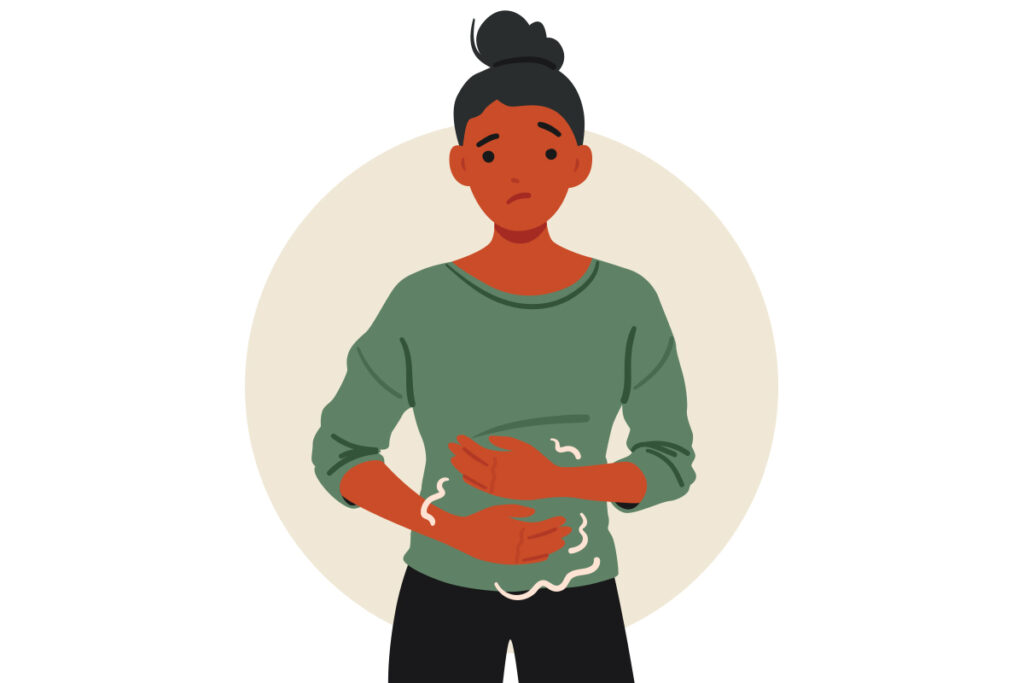Seasonal Allergies: The Summertime Sneezes
As spring flowers give way to summer sun, many assume their hay fever, or seasonal allergies, will fade away along with the daffodils and tulips. Unfortunately, along with barbecues, campouts, and pool parties, summer can also bring a new wave of allergens including tree, grass, and weed pollen. Below, we’ll discuss what triggers these allergies and how to manage them all summer long.
Understanding Summer Allergies
While the immune system naturally produces antibodies to protect against harmful viruses and bacteria, it occasionally mistakes harmless airborne particles (such as pollen) as a health threat. When pollen enters the body through the eyes, nose and lungs, the immune system produces a certain type of antibody called immunoglobulin E (lgE). When these antibodies attack allergen particles, the body sends chemicals known as histamines into the bloodstream. Histamines, in turn, create the unpleasant symptoms associated with hay fever.
Seasonal allergies are unfortunately both common and costly in the United States. According to the Asthma and Allergy Foundation of America, one in three U.S. adults suffer from allergies, including seasonal allergies, eczema, and food allergies. And, as of 2021, Americans spend between $3 to 4 billion each year on treating nasal allergies.

Seasonal Allergy Symptoms
Seasonal allergies cause a variety of bothersome symptoms including:
- Watery, itchy eyes
- A runny or stuffy nose
- Itchy ears, throat, or roof of mouth
- Post-nasal drip
- Coughing
- Sneezing
- Dark circles under the eyes
In some cases, seasonal allergies can lead to other uncomfortable conditions such as sinusitis (an inflammation of the nasal passages), asthma, ear infections, headaches, fatigue and interrupted sleep.
Seasonal Allergy Triggers
Throughout the summer season, there are many different allergens and ways that hay fever can be triggered:
- Pollen Allergy: Pollen allergies are triggered when pollen is found in the air. This can include tree, grass, and weed pollen. Pollen allergy symptoms can include a runny or stuffy nose, sneezing, and watery or itchy eyes.
- Ragweed Allergy: Ragweed is a type of flowering plant that produces particularly powerful pollen. These tiny particles can cause a cough, runny nose, itching, and more in individuals with a ragweed allergy.
- Grass Rash: While it can still produce a runny nose and sneezing in allergic individuals, a skin rash from grass can also develop. A grass rash usually presents as hives and welts after exposure to grass.
Managing Summer Allergies
Seasonal allergies shouldn’t stop you from enjoying the summer weather. If you’re looking to nip these symptoms in the bud, below are some ways to manage hay fever this season.
- Reduce Your Exposure: The easiest way to reduce symptoms is to avoid the allergen, like pollen, when possible. This includes staying inside on dry, windy days when pollen is at its worst. It can also be helpful to avoid yard work (like cutting the grass or pulling weeds) that could stir up pollen and worsen your symptoms.
- Check the Pollen Count: Your local TV or radio station will keep track of current pollen levels and forecasts. You can also use online resources like The Weather Channel to check pollen levels.
- Purify Indoor Air: Sometimes, allergens can still find their way inside. Running your air conditioning, using a dehumidifier, and purchasing an air purifier can all work towards keeping your indoor air clean.
There are also several methods and medications that may help alleviate seasonal allergy symptoms:
- Over-the-counter (OTC) antihistamines can help relieve itching and sneezing.
- Decongestants can help clear nasal passages.
- Nasal corticosteroid sprays can reduce inflammation.
- Nasal irrigation can remove excess mucus and pollen.
- Nasal decongestant sprays may alleviate stuffiness, but should only be used for a limited time as prolonged use may cause infection or other complications.
Most mild to moderate cases of hay fever can be managed by the treatments mentioned above. For those seeking further relief, immunotherapy, commonly known as allergy shots, can help build the body’s immunity to specific allergens over time.
Remedies for Hay Fever
While seasonal allergy symptoms are still nothing to sneeze at, visiting your allergist, reducing your exposure to summer allergens, and choosing from a wide array of OTC treatments and medications can ease your allergy symptoms and help you better enjoy the sunny season.
If you’re looking for specific remedies for seasonal allergies, there are several options you can try:
- Zyrtec: Zyrtec is an antihistamine tablet designed to treat symptoms of hay fever and other seasonal allergies. This includes watery eyes, runny nose, itching eyes and nose, sneezing, hives, and itching.
- Genexa Kids Allergy: If your kids are suffering from seasonal allergies, consider Genexa Kids Allergy, a non-drowsy decongestant in a chewable tablet form. These are organic and contain no artificial dyes.
- Respir-All Respiratory Supplement: Rather than treating symptoms, this supplement contains essential vitamins and minerals to support healthy respiratory function. For best results, this supplement should be taken three times a day.
- LES Labs Sinus & Seasonal: This is another dietary supplement that promotes sinus and nasal health as well as lung and respiratory function. It can help reduce symptoms of seasonal allergies and improve breathing quality without causing drowsiness.
- Hilma Natural Sinus Support: This woman-owned company offers an herbal supplement, including natural ingredients like nettles, butterbur, and more, to protect against allergens like pollen and dust.
By managing your exposure to allergens and treating with OTC remedies when needed, you can nip seasonal allergies in the bud and still enjoy the summer season. You’ll be breathing easier in no time!




